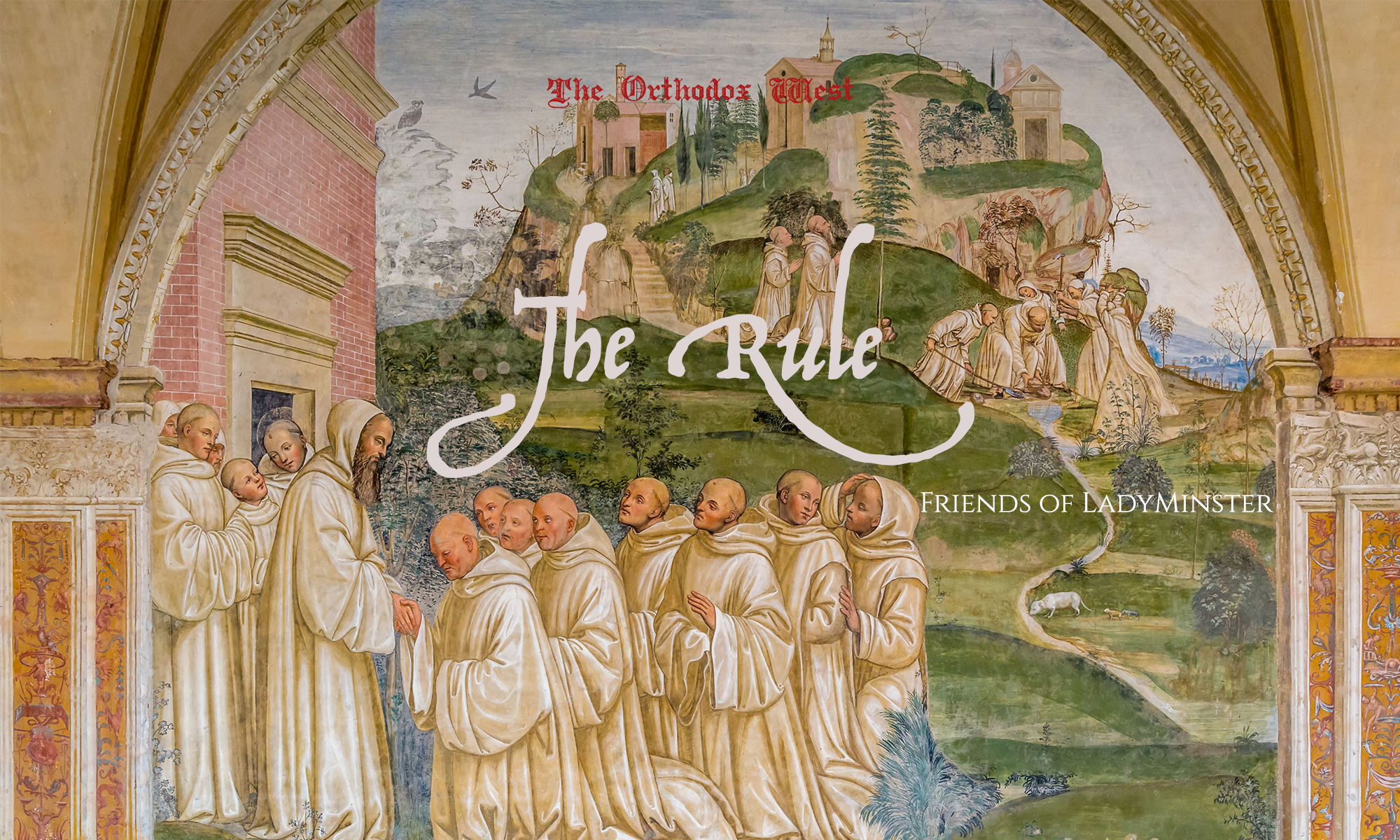“… the Lord seeking His workman in the multitude of the people, to whom He proclaimeth these words, saith again: ‘Who is the man that desireth life and loveth to see good days’ (Ps 33[34]:13)? If hearing this thou answerest, ‘I am he,’ God saith to thee: ‘If thou wilt have true and everlasting life, keep thy tongue from evil, and thy lips from speaking guile; turn away from evil and do good; seek after peace and pursue it’ (Ps 33[34]:14-15). And when you shall have done these things, my eyes shall be upon you, and my ears unto your prayers. And before you shall call upon me I will say: ‘Behold, I am here’ (Is 58:9).” –The Holy Rule, Prologue
Since the 16th century, Christians in the West have dialogued back and forth ab0ut the relationship between faith and works. Protestants, based upon a novel interpretation of St. Paul’s Epistles, especially that written to the Romans, rejected the notion that the things we do or say (“works”) played any part in our “salvation.” Originally, the Protestant Reformers were reacting against practices that were, from an Orthodox understanding, questionable. But popular Protestantism ultimately embraced belief in a dichotomy between faith and works that challenged not only Roman Catholic theology, but the wholeness of the Scriptures and the consistent teaching of Apostolic and Patristic Church.
In this Holy Season of Lenten Fasting, Prayer, and Almsgiving, it is well worth considering what, for Orthodox Christians, is the positive relationship between what we “believe” and what we “do.” For the monastics of Our Lady and Saint Laurence, grounded as we are in the wisdom of St. Benedict’s Rule, this bears a strong relationship to our own motto, “Active in Prayer, and Prayerful in Action.”
Being deeply and prayerfully versed in the Scriptures and having a mindset consistent with the teaching of the other early Fathers, St. Benedict presumes an intimate unity between Christian faith and Christian works. He writes very much in the vein of the Epistle of St. James, “But he that hath looked into the perfect law of liberty, and hath continued therein, not becoming a forgetful hearer, but a doer of the work; this man shall be blessed in his deed,” and, “But some man will say: Thou hast faith, and I have works: shew me thy faith without works; and I will shew thee, by works, my faith. Thou believest that there is one God. Thou dost well: the devils also believe and tremble. But wilt thou know, O vain man, that faith without works is dead?” (Js 1:25; 2:18-20).
For St. James, St. Benedict, and all the early Fathers, faith is not a matter of intellectual assent, of psychological trust in the undeserved mercy of God, or of a formal profession of belief in our Lord Jesus Christ – though it certainly includes all these. Faith is trust that puts into action what God asks of us, by means of the things we choose, say, and do. We know these things through prayerful meditation on the consistent teaching of the Old and New Testaments; for as Orthodox Christians, we presume a continuity between them in which the New clarifies and fulfills the Old, rather than a pseudo-Marcianist attitude of discontinuity between them. For us, faith, as meant by St. Paul, is a a genuine and dynamic relationship with God: thus, who we are is known by what we love, what we say, what we do. As St. Paul told the Philippians, we must “with fear and trembling, work out [our] salvation” (Phil 2:12). Thus, when in the Gospel according to St. Matthew our Lord describes to his disciples the Last Judgement, he is harsh in his condemnation of those who – although they do, indeed, salute him as “Lord,” – have lived lives that did not bear the authentic fruits of a living relationship to him (cf. Matt 25:31-46; see also Matt 7:21; 12:50).
The Lord continues to seek his workmen amongst the multitude of the people. He continues to call out, offering life and good days to all. Are we among those who have responded, saying that desire what he offers? Then let not only our minds and our mouths tell ourselves and others that “I am he,” but let our hearts, our eyes, our ears, our hands, and our feet testify to the truth of what we think and say: that Christ’s eyes may turn to us, his ears be open to us, and his presence surround us now in this life and forever in the next.
